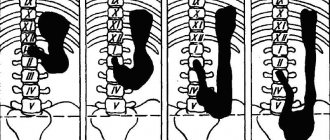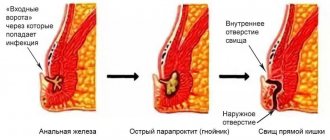The article was checked by a hepatologist, gastroenterologist Fedel S. , is for general informational purposes only, and does not replace consultation with a specialist. For recommendations on diagnosis and treatment, consultation with a doctor is necessary.
At the Clinical Hospital on Yauza, they will quickly find out the cause of poor appetite and other disorders and carry out successful treatment. Qualified doctors - consultants of various profiles, modern examination technologies and expert equipment (ultrasound, endoscopy, endosonography, CT and MRI, all laboratory diagnostics, etc.), an individual approach to each patient ensure the effectiveness of treatment of diseases accompanied by appetite disorders.
Types and causes of occurrence
Loss of appetite can be absolute (anorexia), partial (hyporexia) and reduced (eating food, but in small quantities with a constant feeling of hunger). At the initial appointment, the doctor at the Kuntsevo Medical and Rehabilitation Center identifies one of these reasons that caused the loss of appetite:
- diseases of the intestines, stomach, gall bladder, pancreas,
- infectious diseases,
- helminthic infestations.
In addition, experts note psychological instability and the use of certain medications as the cause of loss of appetite.
Diagnostics
Lack of appetite is observed in many diseases, so the primary examination of the patient is carried out by a general practitioner. To select a set of instrumental and laboratory studies, it is necessary to carefully collect complaints and the history of the development of the disease, and identify the leading pathological syndrome. Next, specific diagnostic methods are prescribed, the most informative of which are:
- Blood analysis
. A standard blood test shows signs of inflammation and anemia, which often indicate a neoplastic cause. Biochemical analysis reveals changes in liver function and decreased excretory function of the kidneys. If the lack of appetite is caused by an infectious process, serological tests are performed to identify the pathogen. - Coprogram
. Macroscopic analysis evaluates the consistency and color of stool, signs of malabsorption syndrome. On microscopic examination, the levels of leukocytes and erythrocytes are elevated, which is a manifestation of inflammatory bowel disease. To establish a diagnosis of dysbacteriosis, stool culture is done. To exclude bleeding, the Gregersen reaction is indicated. - Visualization methods
. Since in adults, lack of appetite is often associated with chronic damage to the gastrointestinal tract, ultrasound of the abdominal cavity, targeted scanning of individual organs, contrast radiography, and FGDS are performed. For renal dysfunction, excretory urography is recommended. To detect tumors and destructive processes, ultrasound of the thyroid gland and adrenal glands is used; in women, the ovaries are visualized. - Neurological examination
. After a standard clinical examination (assessment of eye and tendon reflexes, muscle tone, cognitive functions), additional methods are used. An MRI of the brain is informative, which allows you to detect tumors or other disorders in the area of the sella turcica. If necessary, the patient is referred for consultation to a psychiatrist.
Ultrasound examination is indicated in case of lack of appetite
Which doctor treats loss of appetite
There is no need to ignore such a symptom as decreased appetite. With this problem you need to contact a gastroenterologist.
To make an appointment, choose any method:
- call the clinic +7 (495) 103-99-55,
- order a call back,
- leave a request for an appointment using a convenient form on the website:
Loss of appetite may indicate the development of various pathologies in the patient’s gastrointestinal tract: from helminthic infestation to infectious lesions and disorders at the enzymatic level.
IMPORTANT! In any case, persistent loss of appetite requires consultation with a specialist from the Kuntsevo Medical and Rehabilitation Center. Our experienced gastroenterologists will conduct a full diagnosis to determine the source of the symptom in order to then eliminate the found cause.
Make an appointment with a gastroenterologist at our center - and regain your previous quality of life, without unpleasant alarming symptoms!
SIGN UP
Less consumption - less income
Appetite may decrease because the need for calories decreases or metabolism slows down.
This can be caused by: Article on the topic Herbal decoction will help tame your appetite
It's hot outside. The body does not have to expend calories for heating, which means there is no need to consume large amounts of food. In addition, in the heat, the load on the cardiovascular, nervous, and excretory systems increases. And the body decides to make the task easier for itself and not waste energy on digestion.
Inactive lifestyle. Appetite often worsens when a person moves less. For example, when changing a job in which he had to work physically to a sedentary job in an office. Energy consumption decreases, metabolism slows down, and, as a result, the desire to eat decreases.
Elderly age. Over the years, our sense of smell and perception of taste weakens, which means that less digestive juice is produced when we see a dish. The intestines become lazier with age, and constipation may occur. Metabolism slows down, and there is no special desire to eat.
What should I do?
To improve your appetite, you need to approach menu organization wisely. First of all, switch to fractional meals - eat little by little, but every 3-4 hours. Remove heavy foods from your diet: mushrooms, fried and fatty foods. Try to eat more vegetables, fruits, and berries – their acids stimulate your appetite. If there are no contraindications (gastritis, heartburn), you should use spices and seasonings. And of course, you need to work up an appetite - move more, take a walk.
Article on the topic
Four ways to combat wolf hunger
Forecast
With timely medical care, doctors are able to normalize the patient’s condition and restore the functions of vital organs. A high mortality rate is observed with the protracted nature of the disease and the lack of psychiatric care. It is not always possible to eliminate all psychological complications of pathology even several years after the start of therapy, but working with a psychologist can significantly improve the quality of life.
Thus, eating disorders are serious illnesses. Anorexia should not be underestimated, since complications of this disease can even cause death. Timely contact with a specialist helps improve the prognosis.
What to feed an elderly person with no appetite
There is no simple answer to this question. Each person is individual, and must first undergo an examination to detect the root cause. The minimum set of diagnostic procedures should include a detailed blood and urine test, MRI, ultrasound, gastroscopy and x-ray. Based on the results of the examination, treatment should be prescribed by a specialized doctor. In some cases, the prescription of antibacterial drugs, insulin or hormone replacement substances can help.
There are also special medications that increase appetite in older people. As a rule, these are iron supplements, various digestive regulators, anabolics, dietary supplements, and so on. Selection and appointment are always individual.
It must be remembered that you should not take medications without a prescription from a specialist, as they all have side effects. Self-medication can lead to serious consequences, not bringing the desired result, but only aggravating the situation. Some cases are emergencies. If an elderly person has some serious diagnosis and there is no alternative to treatment, he may be prescribed surgery or chemotherapy.
As mentioned above, appetite may disappear as a result of mental disorders or depressive conditions. In such cases, a psychiatrist should work with the patient and prescribe him sedatives, stimulants or antidepressants. Today, drug treatment is being actively replaced or supplemented by non-traditional treatment methods. This could be physical therapy, hypnosis or acupuncture. If we are talking about senile dementia in progression, which is often accompanied by a complete refusal of food by an elderly person, a gastronomic tube can be used to introduce nutrition.
If a person has lost his appetite, he is advised to take frequent and long walks in clean air, as well as exercise.
Consequences of long-term eating disorders
As already mentioned, long-term deviations in eating behavior can lead to either obesity or dystrophy, that is, depletion of the body. Consequences may also be:
- sleep disorders;
- decreased immunity due to lack of nutrients necessary for the body;
- the appearance of cracks or stretch marks on the skin (with rapid growth of adipose tissue);
- disruption of the activity of internal organs; Source: E.V. Pavlovskaya Selective appetite in children // Issues of modern pediatrics / 2013/ Volume 12/ No. 6
- depression of brain activity (decreased memory and speed of thinking).
Need strength for something else
Sometimes the body turns off its appetite because more important processes are occurring in it that need to be directed toward.
Intoxication due to illness . When you have ARVI, flu, or other inflammatory diseases, sometimes you don’t feel like eating at all. Microbes and viruses that cause them release many toxins during their life processes. The liver must remove them. Since it is actively involved in the digestion process, the body decides to remove the additional burden from it.
Stress. When we are nervous, the hormones adrenaline and cortisol are released into the blood, which increase heart rate, breathing, and increase sweating. The brain needs to regulate all these processes, and it is distracted from digestion. True, this is typical only for acute stress. If it is hidden and sluggish, many people, on the contrary, try to console themselves with food.
What should I do?
If you don’t feel like eating, during an acute period of illness (against the background of a high temperature), you can get by with vitamin drinks: juices, fruit drinks, tea with honey. But when it gets better, you need to eat so that the body can replenish lost energy. Priority is given to light protein dishes, vegetables and fruits rich in vitamins A and C.
Article on the topic
Why do children love “all sorts of nasty things”? A child's taste and appetite are formed even before birth.
You need to force yourself to eat even after nervous tension. When it subsides, the body is depleted - its resources need to be restored. Products rich in magnesium are especially important for this: nuts, legumes, buckwheat, cabbage, beef.
Ways to solve the problem
You can stimulate food cravings in a person by:
- organizing access to your favorite dishes;
- creating a free meal schedule;
- taking certain foods that stimulate appetite (sour berries, citrus fruits, onions, radishes, wild garlic, etc.);
- drinking a small amount of alcohol half an hour before meals;
- taking special medications.
Absolute lack of appetite is a serious problem, the causes of which can be determined by a doctor.
You should not ignore such symptoms. Please follow and like us:
Classification
Anorexia is primarily classified according to etiological factors. When studying the disease, doctors paid attention to different mechanisms of development of the disorder and identified the corresponding forms of the disease.
Anorexia can be divided into the following forms:
* Anorexia nervosa: pathology of the neurotic level. Typically, the onset is in adolescence. The prognosis is favorable.
* Mental: the pathology is more severe. It is based on an endogenous disorder, often on the schizophrenia spectrum. Late onset is typical, after 30 years. The prognosis is unfavorable.
The disease can occur through one or more mechanisms. Clarifying the etiology of the disorder allows specialists to select the most effective treatment regimen.
Content
- Types of appetite disorders
- Prevention of appetite disorders in children
- Causes
- Consequences of long-term eating disorders
- Treatment
Appetite performs a regulatory function in the body, signaling the need to replenish nutrients. Appetite is associated with the work of the food center, which is located in the hypothalamus and cerebral cortex. It is in these areas that food-related impulses are processed and where satiety signals come from. One of the factors that causes the desire to eat is also changes in blood sugar levels. Source: Your Child's Health. The latest reference book./Under the rivers. V.A.Alexandrova. Eksmo Publishing House, 2003








